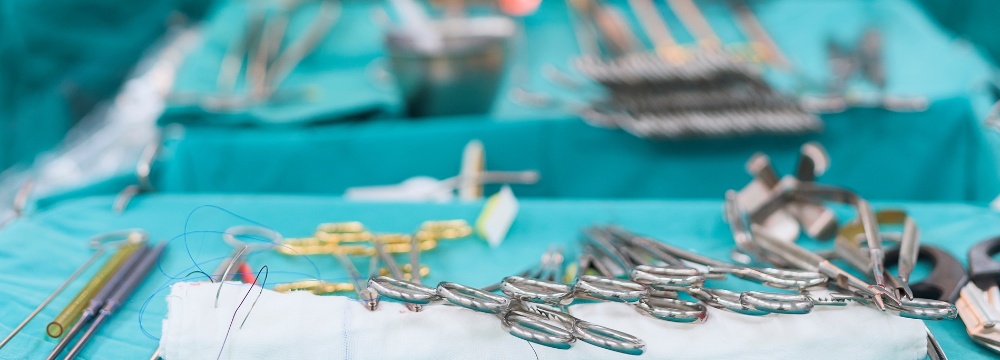Bariatric Surgery

When you start researching bariatric surgery, you may find the choices in procedure overwhelming. Many surgeries are currently approved by the FDA in the United States, and there are plenty more presently being performed overseas. Some of these procedures are considered mainstream, while others are labeled as experimental (by insurance companies, typically). Some are even derivative procedures of others you may already know of. However, the two procedures that have withstood the test of time and represent most bariatric surgeries performed in the US are the gastric sleeve (sleeve gastrectomy) and the gastric bypass (Roux-en-Y).
If you know of someone who’s had bariatric surgery in the past decade, the likelihood is that they’ve had the gastric sleeve. Indeed, the sleeve is the most popular bariatric surgery currently available. Why? It’s simplicity. The gastric sleeve cuts away about 3/4 of the stomach and removes the cutaway portion from the abdomen. This offers two distinct benefits. First is a mechanically restrictive benefit, meaning that you won’t be able to eat as much as you could before since the stomach is so much smaller. Secondly, and somewhat less well-known, is that by removing the outer portion of the stomach, including the fundus, the gastric sleeve eliminates the central production point of the hunger hormone ghrelin. By eliminating this hormone, most patients feel significantly less hunger after surgery, at least for a couple of years until the small intestine begins to produce ghrelin to compensate (more on this in a future article).
On the other hand, gastric bypass is the grandfather (of sorts) of modern bariatric surgery. As the gold standard in bariatric surgery for over 40 years, gastric bypass combines restriction by cutting away a significant portion of the stomach, and malabsorption, by bypassing part of the small intestine. Malabsorption involves limiting the number of calories absorbed into the small intestine.
Weight Loss Compared
Both the gastric bypass and gastric sleeve offer qualifying patients the possibility of exceptional and life-changing excess body weight loss. The gastric bypass has slightly greater and faster overall weight loss. Over the course of five years to a decade, however, the total weight loss numbers are very similar between the two procedures.
The winner? We’ve got to give it to the gastric bypass, but it’s close.
Risks and Considerations Compared
The gastric sleeve and bypass have been standardized over the years, resulting in a low-risk profile for surgical complications. Both procedures are exceptionally safe, and long-term complications are very low in the hands of skilled surgeons like those at our practice. Because both techniques involve dividing and stapling the stomach, a pouch leak is the most concerning possible risk. Fortunately, this is very rare. Because of the malabsorptive portion of the gastric bypass that creates two anastomoses or connections in the small intestine, the risks of the bypass are slightly greater.
The winner? Gastric sleeve, but again not by much.
Postoperative Dietary Limitations Compared
Many patients wonder if they will be miserable after bariatric surgery and only be able to eat a minimal amount of food they don’t enjoy. It is important to mention that this is not the case. Consuming more than a tiny bit of food in the first few months after surgery will be difficult. However, sleeve and bypass patients can eat various foods over time. Some will be off-limits, including sodas and foods with lots of added sugar. Bypass patients will also have a harder time with high-sugar and high-fat meals, risking what is known as dumping syndrome. While dumping syndrome is not life-threatening, it is very uncomfortable and serves as a guide to what a patient can’t eat.
The winner? Both. While gastric sleeve patients generally enjoy a more liberal diet, gastric bypass patients have a built-in feedback mechanism in the form of dumping syndrome. This means bypass patients can learn what foods they should and shouldn’t eat more quickly and may stick to the healthy stuff longer.
Other Considerations
The gastric sleeve may not be the best option for patients with significant or poorly controlled gastroesophageal reflux disease or GERD. However, modern techniques have reduced the incidence or worsening of GERD after a sleeve. Typically, though, we expected about 10 to 15% of patients will experience new or worsening Gerd after this procedure. On the other hand, the bypass is an excellent procedure to control GERD, so if this is a significant concern, gastric bypass is the winner.
Type-two diabetes is also common in the obese population. Often, we look at the gastric bypass as a diabetes operation, putting most patients into remission within days after surgery. This is not the case with the gastric sleeve, though the significant weight loss that the sleeve provides also reduces blood sugar levels dramatically, if not as quickly. If type-two diabetes is a significant concern, and if patients cannot control their blood sugar otherwise, the bypass is the clear winner.
Best for Relatively Higher BMIs
The gastric sleeve and gastric bypass are approved for patients with higher BMIs, but is one procedure better? Ultimately, very high BMI patients may be better served using the dual weight loss function of the gastric bypass versus the sleeve. This is not to say that sleeve patients cannot lose significant weight. We have patients who have lost most, if not all, of their excess weight with the gastric sleeve. Having the malabsorptive component of the bypass, however, does add another layer of weight loss potential.
Best for Relatively Lower BMIs
Once again, the simplicity of the gastric sleeve wins the day here. The gastric sleeve may best serve patients with a BMI of 30 to 40. The postoperative restrictions and potential complications are fewer. In many cases, a lower requirement for excess body weight loss warrants a more straightforward procedure. Once again, this also depends on the patient’s GERD/diabetes status, as comorbidities are not necessarily directly correlated to BMI. In other words, relatively lower BMI obese patients may have many comorbidities, while relatively higher BMI patients may have fewer.
What Procedure Is Best for Me?
As you can see, several criteria go into what procedure is best. Ultimately, this decision has to be made with a qualified bariatric surgeon like those at our practice. During your consultation, we will discuss your medical history and use our extensive experience to guide you toward the best procedure. You may have the option to choose between the sleeve and the bypass and to be sure both procedures are exceptionally effective. Most importantly, you’ve taken your first step toward changing your health and life, which is often the most challenging part of the process. This is not to say that everything else falls into place quickly once you’ve had bariatric surgery. Quite the opposite – it’s a tough road. However, making the mental shift and admitting that you need some help is a catalyst for a new life.










